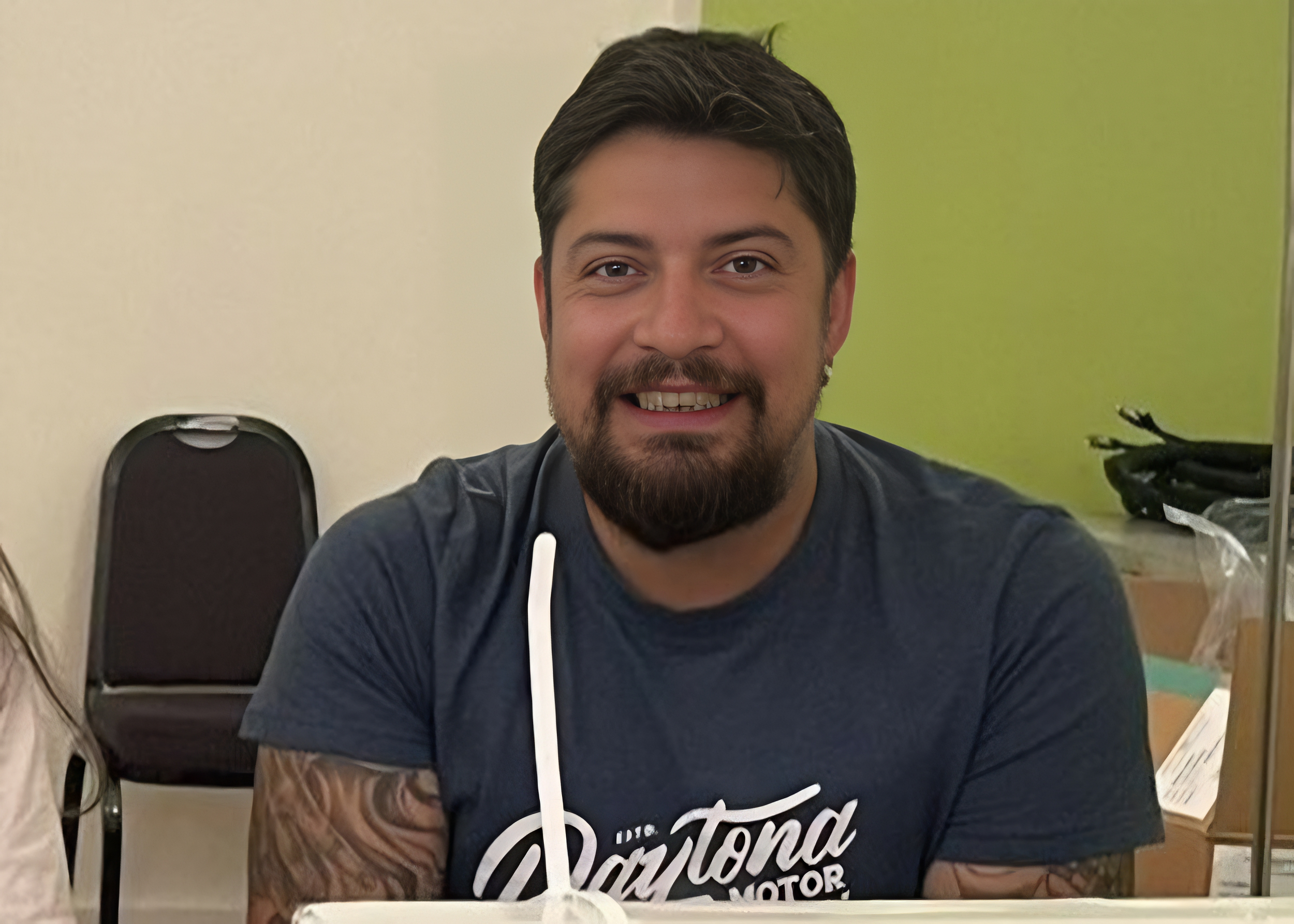In Memory of Sebastián Bello Lepe
A week after he died, it seems there is little of which to make sense. But there is plenty to treasure about Sebastián Bello Lepe, Seb, and I’d like to share my experience with this excellent person.
Seb was a speech and language therapist and lecturer at the Universidad de Valparaíso in Chile. He had funding from that university to pursue at PhD on the topic of aphasia at UCL, under primary supervision of Rosemary Varley and secondary supervision of Wing Yee Chow. He wanted to investigate brain responses to different types of grammatical structures, measured by EEG. I joined his thesis committee, which is set up for each student to oversee their progress.
I imagine most people would have instantly liked Seb; I certainly did. He was very easy going and funny, but at the same time earnest and dedicated. Seb combined a sense of bad-assery with the nerdiness common in our profession (among his many tattoos, a long and beautifully drawn neuron ran down his lower arm). Seb was someone you’d always be happy to see.
His whole PhD arrangement changed when it became clear how much Covid-19 would disrupt research. The “circuit breaker” earlier in the year would extend to ongoing contact restrictions and further lockdowns. “Hands, Face, Space” doesn’t quite gel with sticking electrodes onto strangers’ scalps.
Seb had to look for alternative projects. I had a keen interest in investigating speech pauses, which can indicate at which point in language production the speaker is facing increased processing demands. I was curious to investigate pauses from a new perspective and try out new variables which could predict where pauses would occur.
I would understand any PhD student being freaked out by the prospect of suddenly having to embark on a very different project, but Seb showed great optimism and enthusiasm and quickly made the research his own. After discussing initial steps into the project and pre-registering the study, he soon came back with a complete analysis of the entire data set, and while it required iterations, this demonstrated some of Seb’s great strengths: his drive, energy and speed.
I enjoyed our conversations. We shared an interest in rock and heavy music, and thought about going to a concert together. He also was very interested in politics and made me understand much about the current state of South America and Chile in particular.
Last time we spoke was on December 21st, when we discussed minor revisions the journal requested of the manuscript on pauses. He had come such a long way, from carrying out the work on pauses to presenting it at conferences, co-supervising undergraduate students on a related project, writing a journal article and chapters for his thesis, and finally getting back to his EEG project and completing data collection.
In response to Seb’s tragic death, two words which many of his fellow PhD students use to describe him are “helpful” and “kind”. He helped when another project required a Spanish speaker. He helped with stats. He helped with coding. Beyond that, he helped the Chilean embassy in London run elections. One of his anecdotes I enjoyed is about how he was approached in a rural area in Chile while waiting for a bus. A mother had heard that a speech and language therapist was around, and asked whether he could have a look at her child who had a cleft palate. Seb had his kit with him and so he did, next to the passing cars, and was rewarded in bread.
He had considered staying in London after graduation. He wanted a future and a family with his lovely partner and was worried about the spread of gang violence in Chile. This makes the violence that ended his life in Madrid particularly tragic. Currently, there is a lot of confusion about what happened in that bar in the Latin quarter of Madrid, with information trickling in via articles on Chilean websites. Whatever happened to poor Seb, we have to come to accept it, along with the fragility of life.
One afternoon this summer, he sent me this video by a Chilean metal band. This pick was very “Seb”: heavy music, but in Mapuzungun, a native Chilean language, which made it intellectually exciting. Seb told me he was half Mapuchen, and anyway, I think it is fitting to finish this post with that video. Just a kick-ass, Mapuchen metal song. I will miss you, Seb.

